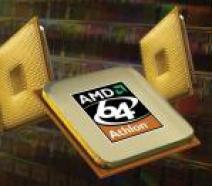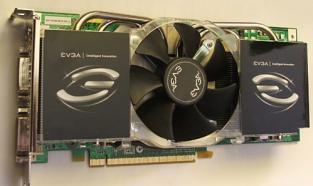OOPS! You forgot to upload swfobject.js ! You must upload this file for your form to work.
AMD Zen is very competitive, according to the head of the company
![]()
|
xtreview is your : Video card - cpu - memory - Hard drive - power supply unit source |
|
|||
|
|
||||
 Recommended : Free unlimited image hosting with image editor
Recommended : Free unlimited image hosting with image editor
|
POSTER: computer news || AMD ZEN IS VERY COMPETITIVE, ACCORDING TO THE HEAD OF THE COMPANY |
DATE:2016-12-01 |
|
|
In contrast to the management of some competitors, CEO Lisa Su tries to answer questions directly and succinctly. Lisa Su confirmed that many questions about the speed of desktop processors with zen architecture will be lifted in the coming days - we recall that the airing of a demonstration of the capabilities Summit Ridge in the gaming environment is scheduled for December 13. In the desktop segment processors with v architecture will be in the first quarter, in the second they are joined by server processors, and hybrid solutions for laptops appear in the second half of 2017. The development of a new processor architecture takes at least three to four years, and the head of AMD believes that the preparation for Zen announcement is not behind schedule. Moreover, given the above-mentioned stages of architecture expansion , Lisa Su reserves the right to consider the rate of Zen expansion very high. AMD customers already receive Zen ( "couple of months") samples, and they are quite happy with them. Desktop models Zen, according to Lisa Su, will be able to successfully compete with the Core i7 processors - not only in performance but also in its relation to the cost. Zen processors will allow AMD to raise the average selling price of processors and increase the profitability of operations. In the server segment, according to Director General, Zen processors can apply for the competition in 80% of the market. The priority for AMD is the ability to offer not only high performance, but also a good mix of performance to price. In general, quite ornate wording which leaves room for maneuver. Now AMD's share in the server segment is less than 1%, but the head of the company is hoping that it will be able to increase to double-digit figures. In the end, once occupied 25% of AMD server processor market. Now success can be developed with the help of GPUs, which are server systems can be engaged in computing acceleration. Unlike NVIDIA, AMD company did not write off programmable FPGA's, as well as by highly specialized custom processors. Universal recipes in the server segment does not exist, and AMD is not the first year, demonstrating its commitment to the heterogeneous computing. | ||
|
|
||
|
xtreview is your : Video card - cpu - memory - Hard drive - power supply unit source |
|
|
|
|
||
|
Xtreview Support  N-Post:xxxx Xtreview Support        |
AMD ZEN IS VERY COMPETITIVE, ACCORDING TO THE HEAD OF THE COMPANY |
| Please Feel Free to write any Comment; Thanks  |
The Japanese representation of AMD offered monetary compensation to the first buyers of Ryzen Threadripper (2017-09-08)
AMD itself would like to believe that mobile processors Ryzen have already been released (2017-09-08)
AMD gave details about the history of the Ryzen Threadripper (2017-09-06)
AMD processors with Zen architecture of the second generation will raise frequencies and specific performance (2017-09-05)
On the Germans, AMD Ryzen Threadripper processors produced a predominantly positive impression (2017-09-04)
More recent AMD Ryzen processors do not annoy Linux users with problems (2017-08-26)
Updated chipset drivers for AMD Ryzen and Ryzen Threadripper processors (2017-08-26)
We are looking at Noctua coolers for AMD Ryzen Threadripper (2017-08-25)
Japanese shops rushed to reduce prices for AMD processors Ryzen Threadripper (2017-08-24)
Ryzen Threadripper turned out to be so large that the waterblocks lack one sticker (2017-08-24)
RYZEN THREADRIPPER 1920X IHS OFF (2017-08-14)
kylake-X versus Ryzen Threadripper in extreme overclocking (2017-08-11)
instead of Ryzen Threadripper, buyers preferred motherboards (2017-08-11)
Details about the work of AMD Ryzen Threadripper with memory and PCIe peripherals (2017-08-11)
G.Skill Introduces Memory Kits for AMD Ryzen Threadripper Processors (2017-08-11)
Ryzen Threadripper number one (2017-08-07)
the first test results of AMD Ryzen Threadripper (2017-08-06)
German producers of water blocks prepare for the release of AMD Ryzen Threadripper (2017-08-05)
AMD Ryzen Threadripper 1920 will limit the value of TDP no more than 140 W (2017-08-04)
Japanese wait for night sales AMD Ryzen Threadripper (2017-08-04)
![]()
To figure out your best laptops .Welcome to XTreview.com. Here u can find a complete computer hardware guide and laptop rating .More than 500 reviews of modern PC to understand the basic architecture


7600gt review
7600gt is the middle card range.
We already benchmarked this video card and found that ...

 geforce 8800gtx and 8800gts
geforce 8800gtx and 8800gts  Xtreview software download Section
Xtreview software download Section  AMD TURION 64 X2 REVIEW
AMD TURION 64 X2 REVIEW  INTEL PENTIUM D 920 , INTEL PENTIUM D 930
INTEL PENTIUM D 920 , INTEL PENTIUM D 930  6800XT REVIEW
6800XT REVIEW  computer hardware REVIEW
computer hardware REVIEW  INTEL CONROE CORE DUO 2 REVIEW VS AMD AM2
INTEL CONROE CORE DUO 2 REVIEW VS AMD AM2  INTEL PENTIUM D 805 INTEL D805
INTEL PENTIUM D 805 INTEL D805  Free desktop wallpaper
Free desktop wallpaper  online fighting game
online fighting game  Xtreview price comparison center
Xtreview price comparison center Lastest 15 Reviews


Rss Feeds
Last News
- The new version of GPU-Z finally kills the belief in the miracle of Vega transformation
- The motherboard manufacturer confirms the characteristics of the processors Coffee Lake
- We are looking for copper coolers on NVIDIA Volta computing accelerators
- Unofficially about Intels plans to release 300-series chipset
- The Japanese representation of AMD offered monetary compensation to the first buyers of Ryzen Threadripper
- This year will not be released more than 45 million motherboards
- TSMC denies the presentation of charges from the antimonopoly authorities
- Radeon RX Vega 64 at frequencies 1802-1000 MHz updated the record GPUPI 1B
- AMD itself would like to believe that mobile processors Ryzen have already been released
- AMD Vega 20 will find application in accelerating computations
- Pre-orders for new iPhone start next week
- Radeon RX Vega 57, 58 and 59: the wonders of transformation
- ASML starts commercial delivery of EUV-scanners
- The older Skylake processors with a free multiplier are removed from production
- Meizu will release Android-smartphone based on Helio P40
- AMD Bristol Ridge processors are also available in American retail
- The fate of Toshiba Memory can be solved to the next environment
- duo GeForce GTX 1080 Ti in GPUPI 1B at frequencies of 2480-10320 MHz
- New Kentsfield overclocking record up to 5204 MHz
- Lenovo released Android-smartphone K8

HALO 3 HALO 3 - Final Fight!

PREY Prey is something you don t often see anymore: a totally unigue shooter experience.

computer news computer parts review Old Forum Downloads New Forum Login Join Articles terms Hardware blog Sitemap Get Freebies


